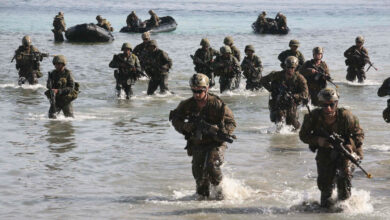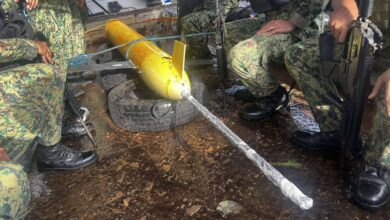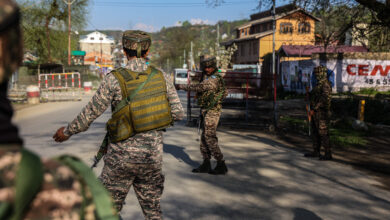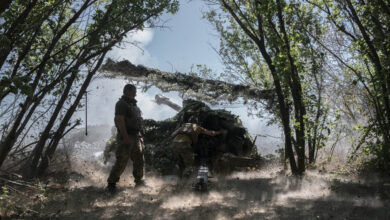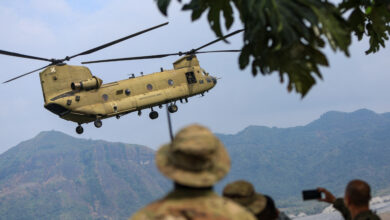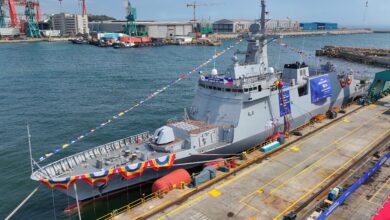Abu Sayyaf militants kill and wound two dozen Philippine soldiers in Sulu attack
Islamic State-linked militants killed 11 Philippine soldiers and wounded 14 others Friday in the group’s deadliest attack in over a year, the military said.
The extremists belong to Abu Sayyaf, a group based in the southern Philippines that has engaged in bombings as well as kidnappings of Western tourists and missionaries for ransom since the early 1990s.
They also have ties to Islamic State militants seeking to set up a caliphate in Southeast Asia.
The attack occurred on a remote island in the country’s south.
Regional military commander Lieutenant-General Cirilito Sobejana told reporters Abu Sayyaf carried out the attack, adding the soldiers were ambushed and had been pursuing security operations against the militants in Sulu province.
Most of the Philippines is under quarantine to stem the spread of coronavirus that has infected nearly 6,000 people and killed more than 380 nationwide.
Friday’s attack is the deadliest involving Abu Sayyaf militants since two suicide bombers blew themselves up at the Catholic cathedral in Sulu province in January last year, killing 21 people.
The military have since mounted operations to free hostages held by Abu Sayyaf, including crew members of foreign cargo vessels abducted in Sulu waters.
Abu Sayyaf commander Isnilon Hapilon pledged allegiance to ISIS founder Abu Bakr al-Baghdadi in 2014, and in July 2018 the group became part of the newly declared Islamic State East Asia province. Hapilon was killed in 2017.
An Abu Sayyaf faction took part in the May 2017 seizure by ISIS-linked gunmen of the southern Philippine city of Marawi.
Philippine troops recaptured the bombed out city after a five-month campaign that claimed more than a thousand lives.
With reporting from AFP




